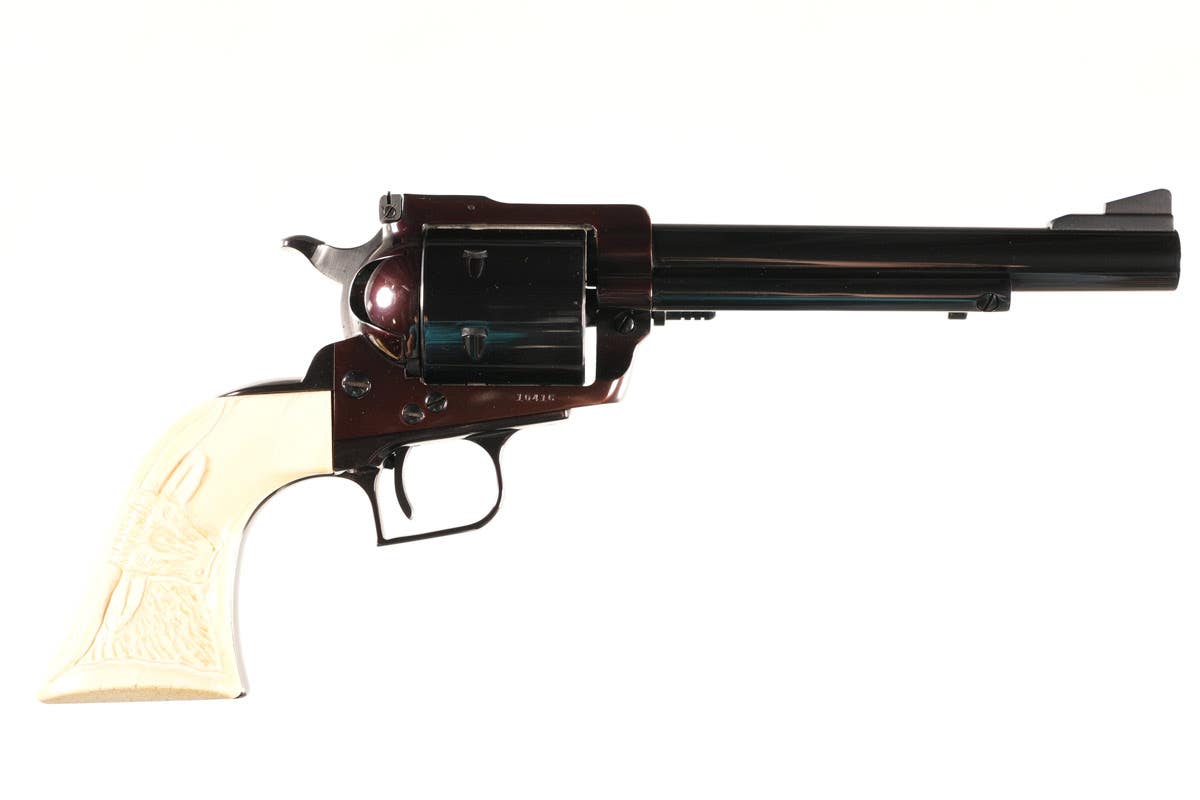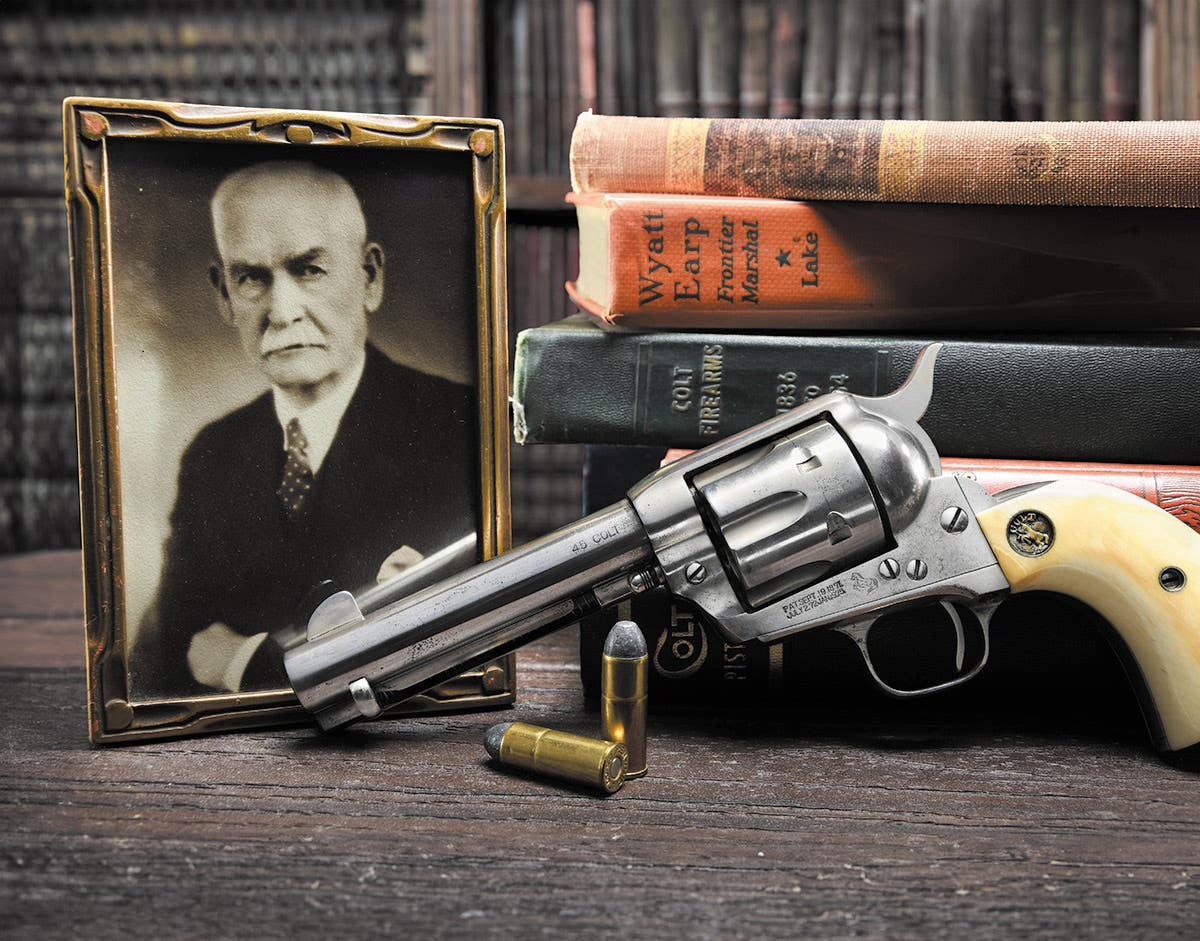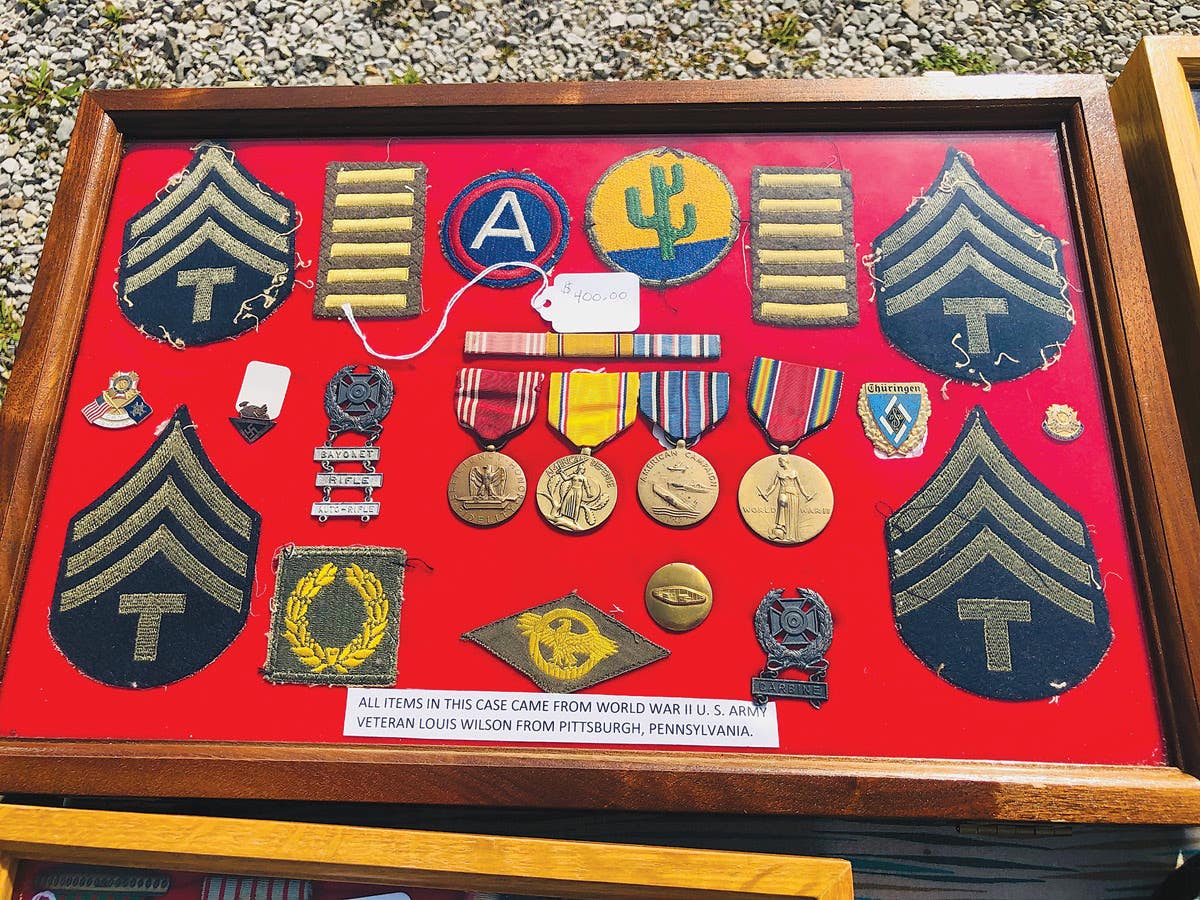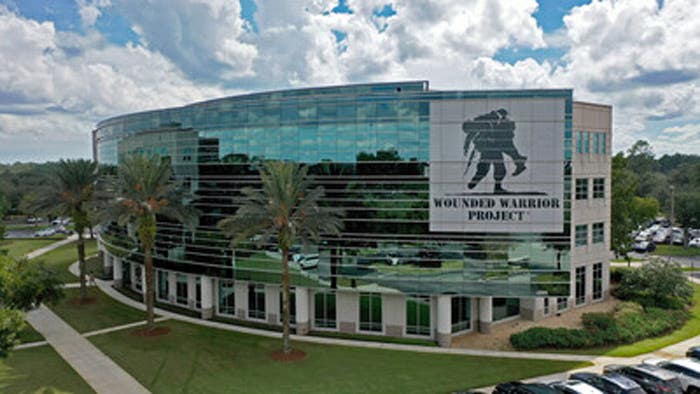Kentucky Antique Gun Trial Ends in Acquittals
Many of the guns mentioned during the high profile, six-week trial have historical significance: Teddy Roosevelt’s “Big Stick,” Gen. George Custer’s Colt six-shooters and a Winchester rifle carried by Buffalo Bill.
LOUISVILLE, Ky. (AP) _ A jury rejected all felony charges brought against an Alabama couple accused of selling a slew of famous firearms to a millionaire collector at fraudulent prices.
Many of the guns mentioned during the high profile, six-week trial have historical significance: Teddy Roosevelt's "Big Stick," Gen. George Custer's Colt six-shooters and a Winchester rifle carried by Buffalo Bill.
Federal prosecutors said the collector, Owsley Brown Frazier, was charged inflated prices for the guns by Michael K. Salisbury, the man he entrusted with building a world-class collection.
Salisbury, of Owens Crossroads, Ala., was acquitted of nine federal charges including wire fraud, money laundering and tax evasion on Tuesday after a jury deliberated for about a day and a half. His wife, Karen Cruse Salisbury, was cleared on three charges related to fraud and money laundering.
Michael Salisbury was convicted on two lesser tax charges, both misdemeanors.
A third defendant, R.L. Wilson, a renowned gun historian and author, was cleared of two felony tax charges.
Michael Salisbury cried and put his hands over his face after the verdict was read Tuesday afternoon. He and his wife hugged and kissed as the U.S. District courtroom cleared, but both declined to comment. Wilson, who lives in San Francisco, also left without comment.
Karen Salisbury's Louisville attorney, Scott C. Cox, said the couple felt relieved after the verdict.
"This is just a tremendous burden that has been lifted," Cox said.
Federal prosecutors had alleged the couple bilked Frazier, a former vice chairman at liquor giant Brown-Forman, out of about $1.5 million. In one alleged instance, Salisbury charged Frazier $65,000 more than Salisbury paid for Custer's six-shooters, prosecutors said.
But attorneys for the Salisburys said Frazier and Salisbury had a secret agreement that afforded Salisbury generous commissions on the sales.
The case was highly publicized by the U.S. attorney's office in Louisville after a grand jury indicted the Salisburys and Wilson in January 2006. The office held a news conference and handed out copies of the indictment to reporters.
But defense attorneys alleged during the trial that those indictments were the product of Frazier's wealth and connections in the community.
Michael Salisbury's attorney, Neal Sonnett of Miami, said the verdict was a "vindication of Mr. Salisbury on any allegation that he tried to cheat Mr. Frazier."
"As I told the jury, if Owsley Bumford had brought this complaint, they would ... not have proceeded," Sonnett said.
U.S. Attorney David Huber said Tuesday that his office received no outside pressure to prosecute the Salisburys.
"Those kind of statements bother me," Huber said. "He has given a lot to this community, but that is not the reason" federal prosecutors brought this case.
Huber said prosecutors were hindered by the deterioration of Frazier's health over the past several years. He said that hurt Frazier's testimony.
"That had a major impact on his memory," Huber said. "We wish (the verdict) had been different."
Frazier left without commenting to reporters after the verdict was read.
The Salisburys met Frazier in the late 1990s when Frazier contacted Michael Salisbury about helping him put together a collection of antique firearms. But the two had a falling-out after Salisbury was named president of the Frazier Historical Arms Museum, which is now called The Frazier International History Museum.
Michael Salisbury is scheduled to be sentenced on the misdemeanor charges April 28.
Frazier filed a civil suit against the Salisburys and Wilson in 2004, but that case was put on hold until the criminal trial was completed.







